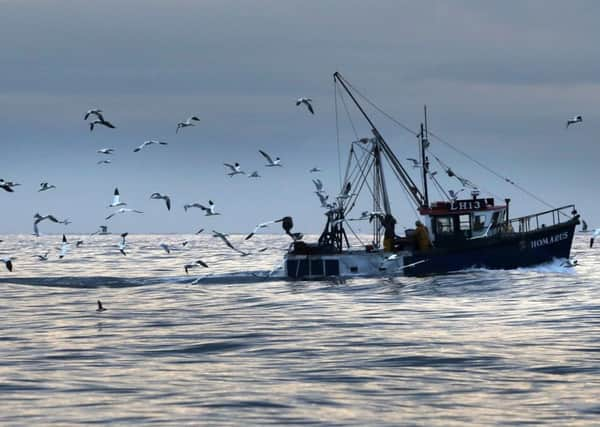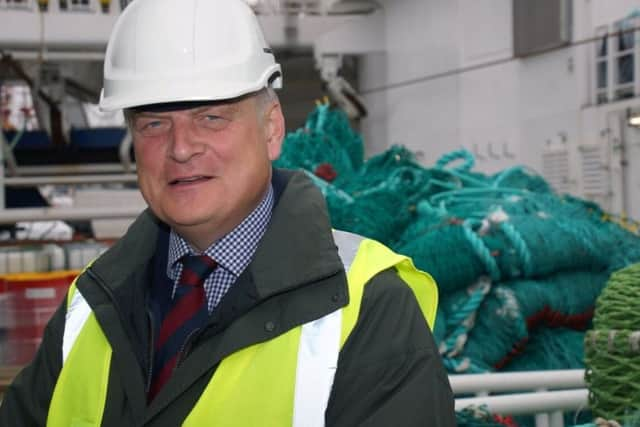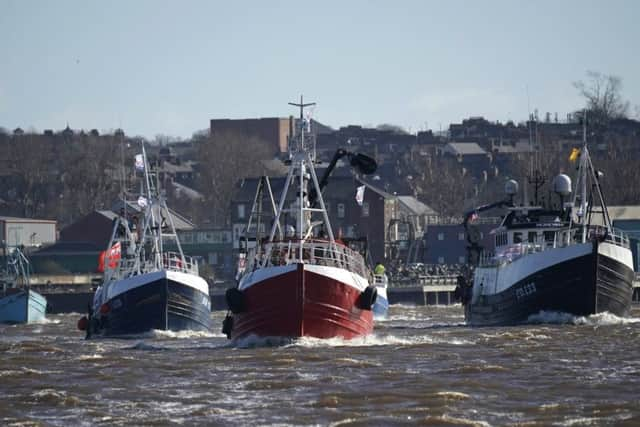Fishing fleets deserve better than this if they’re not to be sunk by Brexit – Sir Barney White-Spunner


The Conservatives, for example, pledge only ‘new support…for our farming and fishing industries’, and while there is to be ‘a post-Brexit deal for Scottish fishing’, the topic of English fishing is not raised.
Advertisement
Hide AdAdvertisement
Hide AdLabour talks only of ensuring ‘support and certainty’ for the fishing industry, while the Liberal Democrats do not mention fishing at all.


While we all understand that policies and arrangements surrounding such an important industry as fishing are difficult to encapsulate in manifesto soundbites, this is disappointing.
Few industries resonate more with the British public, and not least in the coastal towns and cities of Yorkshire, whose many marginal constituencies may prove an important battleground on December 12.
Advertisement
Hide AdAdvertisement
Hide AdFishing may not be the force it once was, but many communities are still culturally and financially dependent on the vessels of all sizes that, among other things, provide our national dish and bring hundreds of jobs to the region.


Our new representatives in Westminster, and our public servants in Whitehall, will need to act quickly and decisively on fishing. Later this month, they will immediately find themselves confronted with – and perhaps bewildered by – the sheer complexity of the UK fishing sector and its close interdependence with the European Union and coastal states around the North Sea.
But there is every reason for optimism, as long as the next government understands there is a good outcome easily within its grasp.
When the UK leaves the EU and is no longer bound by the Common Fisheries Policy, our industry undoubtedly stands to gain. The Government will have the freedom to allocate quotas for UK waters as it sees fit, but there is still likely to be some kind of trade and access relationship with the EU, as well as with states currently known as ‘third countries’ – not least Norway, the Faroes and Greenland.
Advertisement
Hide AdAdvertisement
Hide AdAt UK Fisheries, we are of course concerned with the fortunes of the English distant-waters fishing fleet, which for centuries has operated in the rich but dangerous fishing grounds of the Barents and Greenland Seas. Our ice-class trawler Kirkella is away from Hull for weeks or months at a time, catching cod and haddock for our national dish.
But we are also mindful of Britain’s huge fleet of mostly small boats catching high-value shellfish around our shoreline. Such fishermen depend for their livelihood on fast, tariff and check-free exports of their product to the EU, while the distant-waters fleet, landing its fish at British ports for the British market, relies on long-standing deals with Norway, Greenland and the Faroe Islands that grant access to their waters.
Neither of these groups will benefit from increased quotas for UK boats fishing in British waters (Kirkella because she does not fish in UK waters, the shellfish boats because their catch is usually not subject to quotas), but both could be faced with significant challenges if any post-Brexit regime does not take their needs into account. And so even though we fish in different places for different products for different markets, we have common cause.
The Department for International Trade and Defra have, over the past few months, shown they are able to strike sensible agreements with third countries. Now the same focus and flexibility is required for the negotiation of new, permanent, bilateral deals which will grant our partners continued access to the UK market for selling fish, and maintain the fishing opportunities now enjoyed by UK vessels operating sustainably in and around the Barents Sea.
Advertisement
Hide AdAdvertisement
Hide AdEvery effort needs to be made to lock in these temporary arrangements, so that an unintended no-deal Brexit does not bring a sudden and permanent end to distant-waters fishing from the East Coast of England. For that is what is at stake.
Fishing is a part of our local heritage. It can and will have a bright future if all our fishermen and women are allowed to get on with what they do best – bringing home British fish in a sustainable way. If our new representatives in Westminster fully understand this, then we need have no fear for the future of our industry.
Sir Barney White-Spunner is the Advisory Board Chairman of UK Fisheries.